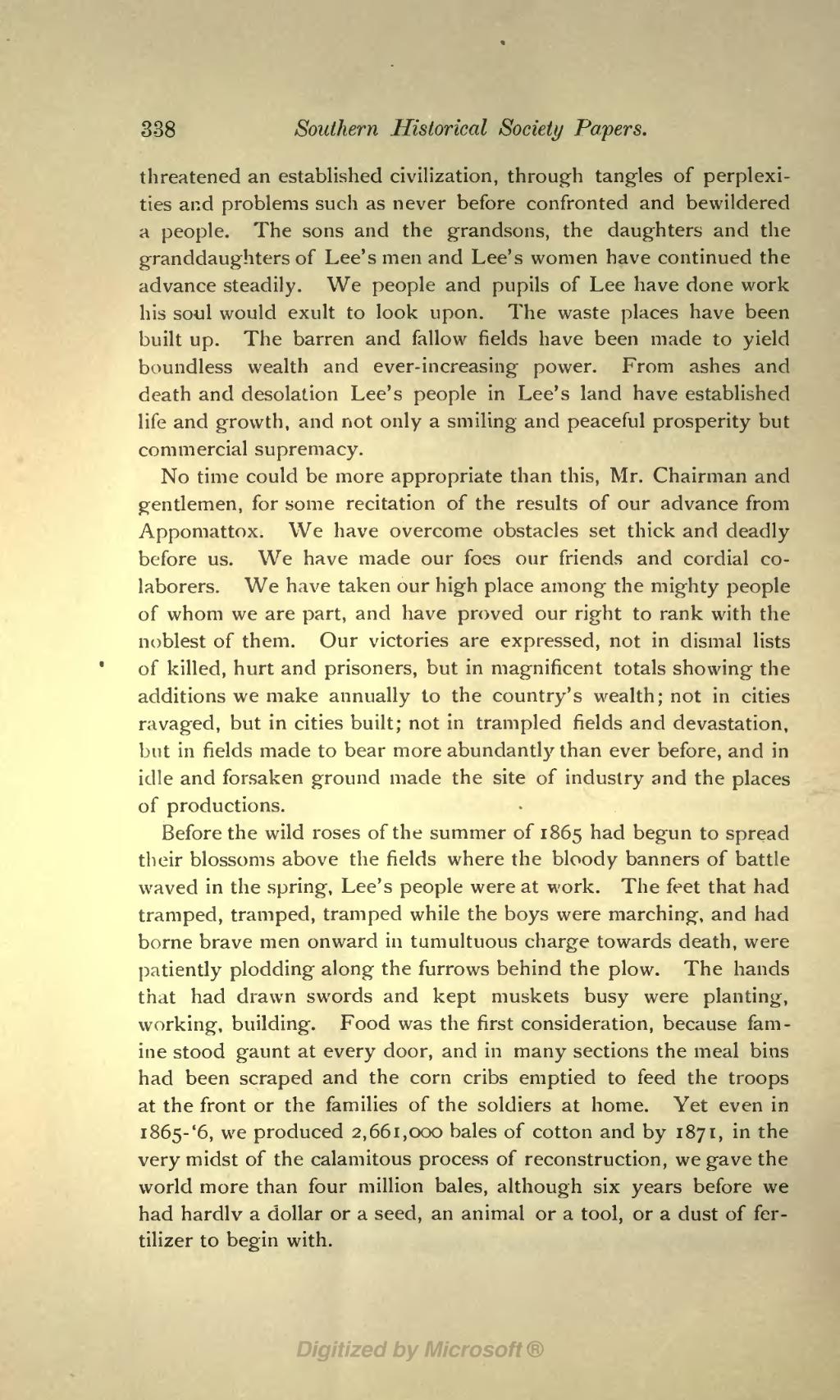338 Southern Historical Society Papers.
threatened an established civilization, through tangles of perplexi- ties and problems such as never before confronted and bewildered a people. The sons and the grandsons, the daughters and the granddaughters of Lee's men and Lee's women have continued the advance steadily. We people and pupils of Lee have done work his soul would exult to look upon. The waste places have been built up. The barren and fallow fields have been made to yield boundless wealth and ever-increasing power. From ashes and death and desolation Lee's people in Lee's land have established life and growth, and not only a smiling and peaceful prosperity but commercial supremacy.
No time could be more appropriate than this, Mr. Chairman and gentlemen, for some recitation of the results of our advance from Appomattox. We have overcome obstacles set thick and deadly before us. We have made our foes our friends and cordial co- laborers. We have taken our high place among the mighty people of whom we are part, and have proved our right to rank with the noblest of them. Our victories are expressed, not in dismal lists of killed, hurt and prisoners, but in magnificent totals showing the additions we make annually to the country's wealth; not in cities ravaged, but in cities built; not in trampled fields and devastation, but in fields made to bear more abundantly than ever before, and in idle and forsaken ground made the site of industry and the places of productions.
Before the wild roses of the summer of 1865 had begun to spread their blossoms above the fields where the bloody banners of battle waved in the spring, Lee's people were at work. The feet that had tramped, tramped, tramped while the boys were marching, and had borne brave men onward in tumultuous charge towards death, were patiently plodding along the furrows behind the plow. The hands that had drawn swords and kept muskets busy were planting, working, building. Food was the first consideration, because fam- ine stood gaunt at every door, and in many sections the meal bins had been scraped and the corn cribs emptied to feed the troops at the front or the families of the soldiers at home. Yet even in 1 865- '6, we produced 2,661,000 bales of cotton and by 1871, in the very midst of the calamitous process of reconstruction, we gave the world more than four million bales, although six years before we had hardlv a dollar or a seed, an animal or a tool, or a dust of fer- tilizer to begin with.
